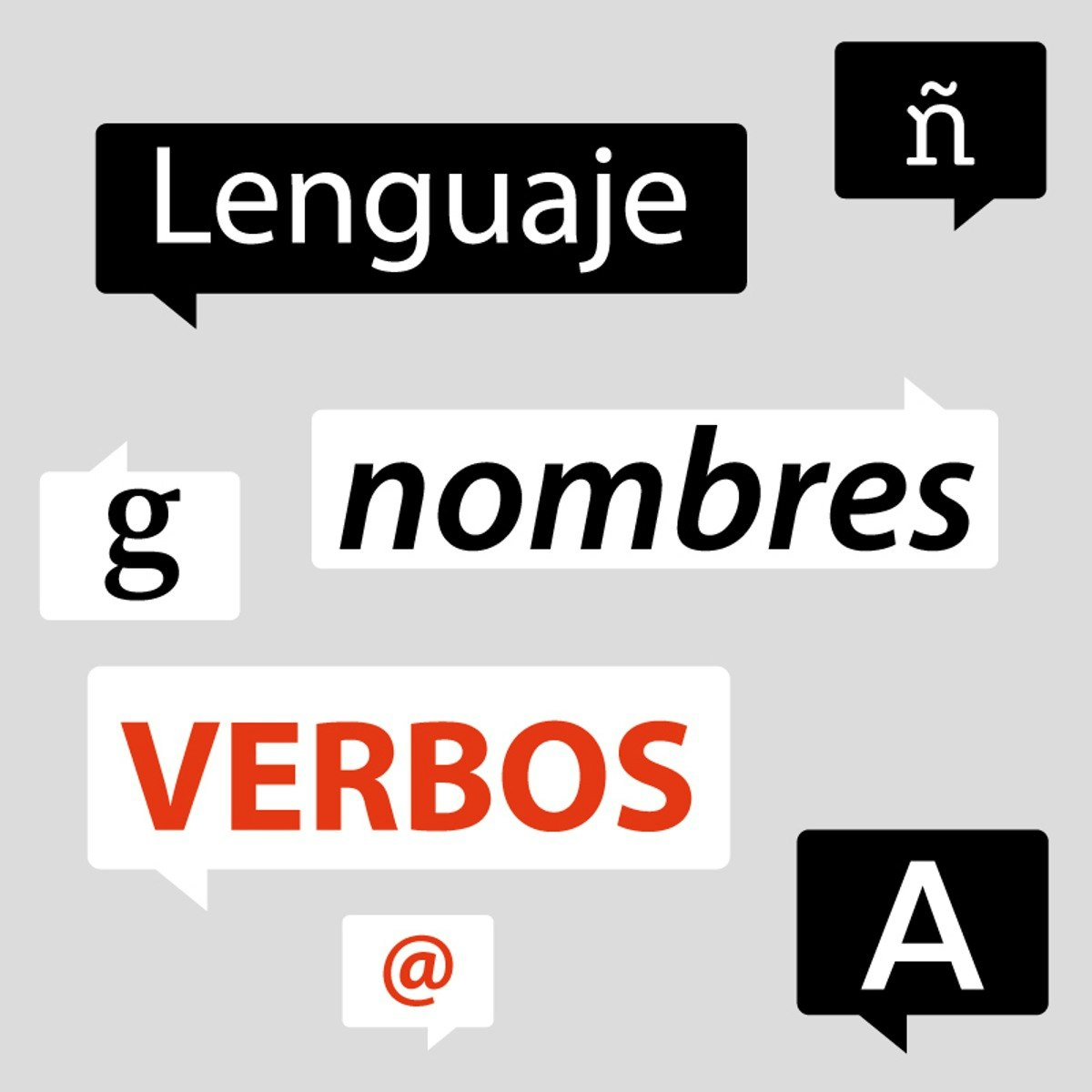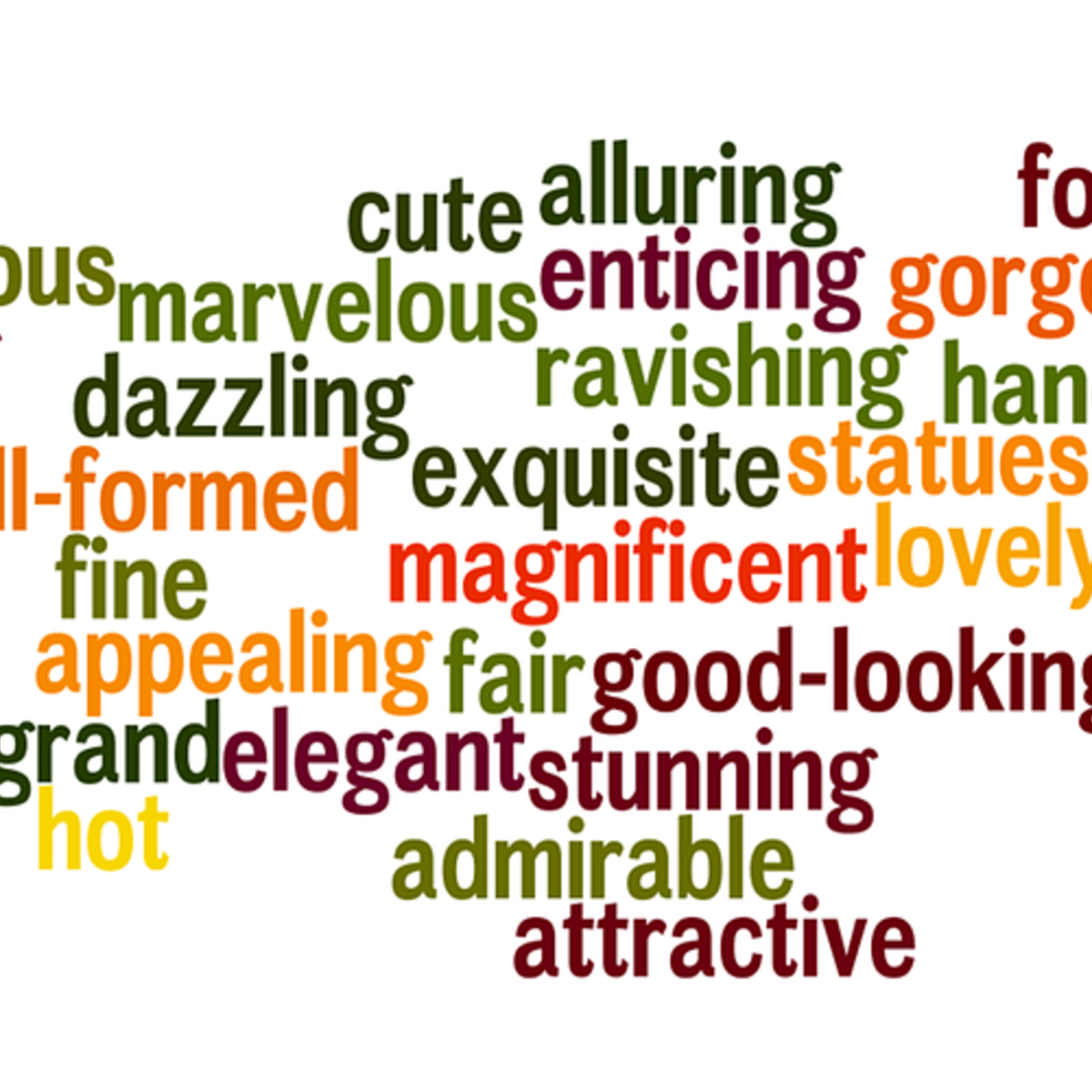Creative Writer
A Career Exploration: The Creative Writer
Creative writing is the art of crafting original works through imagination, artistry, and storytelling. It encompasses a wide range of forms, including fiction (novels, short stories), poetry, plays, screenplays, and even creative nonfiction. Unlike technical or academic writing, which prioritizes clarity and objectivity to convey information, creative writing focuses on engaging the reader emotionally and intellectually through narrative, character, imagery, and style.
Embarking on a path as a creative writer can be deeply rewarding. It offers the chance to explore the depths of human experience, invent new worlds, and share unique perspectives. Many find excitement in the process of creation itself – transforming a fleeting idea into a structured piece of art. Furthermore, the potential to connect with readers, provoke thought, or simply entertain provides a powerful motivation for those drawn to this field.
What Does a Creative Writer Do?
Defining the Craft
At its core, a creative writer uses language to craft narratives, evoke emotions, and explore themes in imaginative ways. This involves more than just putting words on paper; it requires a deep understanding of storytelling techniques, character development, plot structure, pacing, and voice. Creative writers often specialize in a particular genre or form, such as science fiction novels, contemporary poetry, or stage plays.
The daily life of a creative writer can vary significantly. Some hold traditional employment, perhaps writing for media companies, game developers, or advertising agencies, while many work as freelancers, balancing multiple projects and clients. Others focus primarily on their personal artistic projects, like novels or poetry collections, often supplementing their income through teaching, editing, or other related work. Regardless of the specific path, discipline, self-motivation, and resilience are essential traits.
It's important to understand that creative writing is distinct from other forms like journalism, technical writing, or copywriting, although skills can overlap. While a journalist reports facts and a technical writer explains complex processes, the creative writer's primary goal is often artistic expression and reader engagement through imaginative means. This distinction shapes the required skills, career paths, and measures of success within the field.
Dismantling Common Myths
Several misconceptions surround the life of a creative writer. One common myth is the "starving artist" trope, suggesting that a financially stable career in creative writing is impossible. While income can be variable and competition fierce, many writers build sustainable careers through diverse income streams, including royalties, freelance assignments, grants, teaching, and related roles like editing or content strategy.
Another misconception is that creative writing relies solely on innate talent or sudden inspiration. In reality, writing is a craft honed through persistent practice, study, and revision. Successful writers dedicate significant time to developing their skills, understanding their chosen market, and treating their writing as a serious profession, not just a hobby pursued when inspiration strikes.
Finally, some believe that formal education is unnecessary for creative writing. While it's true that talented writers emerge from various backgrounds, structured learning—whether through university programs, workshops, or dedicated self-study using online resources—provides invaluable tools, feedback, and understanding of the craft and industry. Foundational knowledge in narrative theory, genre conventions, and revision techniques significantly accelerates development.
To begin exploring the craft, understanding the fundamentals of language and expression is key. Courses focusing on linguistic awareness can help writers gain finer control over their words.
Mastering grammatical structures is also fundamental for clear and effective expression.
Fundamental Groundwork
Aspiring creative writers should begin by reading widely and critically within their genres of interest. Analyzing how established authors structure plots, develop characters, and utilize language provides a practical education. Equally important is consistent writing practice. Setting regular writing goals, even small ones, helps build discipline and develop a unique voice.
Seeking feedback is crucial for growth. Joining critique groups, attending workshops, or enrolling in writing courses allows writers to see their work through others' eyes and identify areas for improvement. Learning to both give and receive constructive criticism is a vital skill in this collaborative field.
Building a basic understanding of the publishing industry or relevant media landscape is also advisable early on. Knowing how to format manuscripts, write query letters, or pitch ideas can be just as important as the writing itself. While the creative aspect is paramount, practical knowledge about the business side of writing is essential for turning passion into a viable career path.
Core Skills for Creative Writers
Mastering the Craft: Technical Skills
Technical proficiency forms the bedrock of creative writing. This includes a strong command of language—grammar, syntax, and vocabulary—but extends far beyond correctness. Writers must understand narrative structure: how to build compelling plots, manage pacing, and create satisfying arcs for stories and characters. Developing a distinct and appropriate voice for each piece is also crucial.
Genre conventions play a significant role. A writer aiming for success in fantasy needs different tools and knowledge than one writing contemporary literary fiction or poetry. Understanding the expectations and tropes of a chosen genre allows writers to either meet reader expectations effectively or subvert them intentionally for artistic effect. Mastery involves knowing the rules before deciding how and when to break them.
Perhaps the most critical technical skill is revision. First drafts are rarely perfect; the ability to objectively assess one's work, identify weaknesses, and undertake substantial rewriting is what separates amateurs from professionals. This involves not just correcting errors but potentially restructuring plots, deepening characters, and refining language sentence by sentence.
These foundational books offer deep insights into storytelling and writing craft.
Developing skills in specific forms, like poetry or worldbuilding, can be enhanced through targeted learning.
The Business of Writing
For many creative writers, particularly freelancers, business acumen is essential. This involves understanding how to find and secure work, which may include writing effective pitches, query letters, or proposals. Knowing how to market oneself and build a professional network can significantly impact opportunities and income.
Negotiating contracts and understanding basic legal terms related to intellectual property, rights, and payments are critical skills. Writers need to protect their work and ensure fair compensation. This often means learning about standard industry rates, royalty structures versus work-for-hire agreements, and payment schedules.
Financial management is another key aspect, especially for freelancers who face variable income and need to manage taxes, expenses, and savings independently. Developing good record-keeping habits and potentially working with accountants familiar with creative professions can alleviate significant stress. Building a sustainable career often requires treating writing as a small business.
Understanding how to craft compelling ideas that resonate with the market is a valuable business skill.
These books provide guidance on the practical aspects of getting published and refining prose for impact.
Adapting Across Media
The modern media landscape demands adaptability. A story might begin as a novel but find new life as a screenplay, a graphic novel script, or even content for an interactive game. Writers who can tailor their style, structure, and pacing for different formats significantly expand their career options.
Writing for digital platforms often requires understanding user engagement, search engine optimization (SEO), and the constraints of online reading habits. This might involve crafting shorter paragraphs, using subheadings effectively, or integrating multimedia elements. Similarly, writing for audio formats like podcasts or audio dramas requires attention to sound design possibilities and pacing suited for listeners.
Understanding the collaborative nature of different media is also key. Writing a screenplay involves working closely with directors, producers, and actors. Writing for video games necessitates collaboration with designers, programmers, and artists. Flexibility and strong communication skills are paramount when adapting creative visions across various platforms.
These resources delve into writing for specific media like stage plays and games.
Collaboration and Communication
Few writers work in complete isolation. Collaboration with editors is a fundamental part of the process for novelists, poets, and screenwriters alike. Learning to accept and integrate editorial feedback constructively is crucial for refining work and meeting publication or production standards. Building a good working relationship with an editor can be invaluable.
In fields like film, television, theater, and game development, writing is inherently collaborative. Writers work within creative teams, contributing to a larger vision. This requires excellent communication skills, the ability to compromise, and an understanding of the roles and constraints of other team members. Success often depends as much on teamwork as individual talent.
Even seemingly solitary writers benefit from collaboration through critique partners, beta readers, or writing groups. Engaging with a community provides support, diverse perspectives, and accountability. Strong interpersonal skills help navigate these relationships effectively, fostering mutual growth and encouragement.
Developing teamwork and creative synergy is important in many writing contexts.
Working with an editor is a common collaborative process.
Formal Education Pathways
University Degrees: BA vs. MFA
Many aspiring writers pursue formal education through university programs. A Bachelor of Arts (BA) in English Literature or Creative Writing provides a broad foundation in literary study, critical analysis, and writing techniques. These programs often allow students to explore various genres and develop foundational skills alongside a liberal arts education.
A Master of Fine Arts (MFA) in Creative Writing is a more specialized, terminal degree focused intensely on the practice of writing and the development of a professional portfolio (typically a book-length manuscript). MFA programs emphasize workshop-based learning, where students critique each other's work under faculty guidance. These programs are often highly competitive and best suited for writers already committed to a specific genre.
The choice between a BA and an MFA depends on individual goals and career stage. A BA offers broader exploration, while an MFA provides deep specialization and often, valuable industry connections and teaching opportunities. Neither guarantees success, but both can offer structured environments for significant artistic growth.
Courses designed for university-level writing can help bridge the gap or supplement formal studies.
Curriculum and Workshop Culture
Creative writing programs typically blend literature courses with writing workshops. Literature courses build analytical skills and provide exposure to diverse styles and traditions. Workshops are the core pedagogical method, involving peer critique of student manuscripts guided by experienced faculty writers.
The workshop model aims to simulate a professional feedback environment. Students learn to articulate constructive criticism, defend their artistic choices, and incorporate feedback effectively into revisions. This process can be intense but is invaluable for honing craft and developing resilience.
Beyond workshops, curricula often include craft seminars focusing on specific elements like plot, character, dialogue, or poetics. Students might also take courses in literary theory, publishing, or screenwriting, depending on the program's focus. The goal is to produce well-read writers with a sophisticated understanding of both craft and context.
These books offer insights often explored in writing programs, focusing on dialogue and overall writing power.
The Value of Interdisciplinary Study
Combining creative writing studies with other disciplines can enrich a writer's work and expand career options. A background in history, science, psychology, or philosophy can provide unique perspectives and subject matter for creative projects. Understanding diverse fields allows writers to create more nuanced characters, believable worlds, and thought-provoking themes.
For example, a writer interested in science fiction might benefit from studying physics or biology. Someone writing historical fiction would gain depth from history courses. A playwright exploring psychological themes could find value in studying psychology or sociology.
Furthermore, skills from other fields can be directly applicable. Business or marketing knowledge aids in the practical aspects of a writing career. Skills in visual arts or music can inform writing for multimedia projects. An interdisciplinary approach fosters intellectual curiosity and versatility, qualities highly valuable for any creative professional.
Exploring related fields through online courses is easily accessible. Consider browsing categories like History, Science, or Psychology on OpenCourser.
Alternative Training Methods
Building a Portfolio Independently
Formal education isn't the only route to becoming a creative writer. Many successful authors are largely self-taught, building their skills through dedicated practice and independent projects. The key is consistent output: regularly finishing stories, poems, or script pages helps build momentum and refine craft through trial and error.
Creating a portfolio of polished work is essential, regardless of educational background. This collection demonstrates your skills and unique voice to potential agents, editors, or employers. Focus on quality over quantity, selecting pieces that best represent your abilities in your chosen genre or form.
Online platforms offer numerous opportunities to publish work independently, gain visibility, and even build an audience. Blogging, self-publishing ebooks, contributing to online literary magazines, or platforms like Kindle Vella can be effective ways to share your writing and receive feedback, serving as stepping stones toward larger goals.
Learning to self-publish or utilize new platforms can be part of an independent strategy.
The Power of Community and Critique
Writing can be solitary, but growth often happens in community. Joining a writing group—either online or in person—provides regular deadlines, accountability, and invaluable feedback from peers. Different perspectives can highlight blind spots and offer new solutions to creative challenges.
Critique groups function best when members offer honest yet supportive feedback focused on the writing itself, not personal taste. Learning to articulate critiques effectively is as important as learning to receive them. These interactions help writers develop objectivity about their own work.
Online forums, social media groups dedicated to writing, and local literary centers can also provide community and resources. Engaging with fellow writers offers emotional support, shared learning experiences, and potential networking opportunities within the broader literary world.
Completing a substantial project, like in a capstone course, can be a goal within a community or independently.
Residencies, Retreats, and Mentorship
Writing residencies and retreats offer dedicated time and space for writers to focus intensively on their projects, away from daily distractions. These opportunities often involve competitive application processes but can provide significant creative breakthroughs. Some also offer stipends or networking opportunities with established professionals.
Securing a mentor—an experienced writer willing to offer guidance and support—can be profoundly beneficial. Mentorships might arise organically through networking or be facilitated through formal programs offered by writing organizations or universities. A good mentor provides personalized advice on craft, career navigation, and the writing life.
Workshops and conferences, while shorter-term commitments, also offer valuable learning and networking. These events often feature sessions led by published authors and industry professionals, providing insights into craft and the business of writing. They are excellent venues for connecting with agents, editors, and fellow writers.
Creative Writer Career Progression
Starting Out: Entry-Level Paths
Breaking into the creative writing field often requires persistence and flexibility. Many writers begin with entry-level opportunities that build experience and portfolio pieces, even if they aren't creatively ideal. This might include writing for content websites, contributing to blogs, ghostwriting, or taking on smaller freelance assignments.
These initial roles help develop professional habits, such as meeting deadlines, working with editorial feedback, and managing client communication. While the pay might be lower initially, the experience gained is valuable. Some writers also start in adjacent fields like marketing, public relations, or journalism, leveraging those skills while developing their creative projects on the side.
Building a strong online presence and network can also open doors. Sharing work samples, engaging with industry communities, and demonstrating professionalism can attract attention from potential clients or collaborators. Patience is key, as establishing a reputation takes time.
Related writing careers can serve as entry points or parallel paths.
Mid-Career Development and Specialization
As writers gain experience, they often begin to specialize in particular genres, forms, or industries. A fiction writer might become known for a specific type of novel (e.g., mystery, romance). A screenwriter could specialize in television comedy or feature-length dramas. Specialization can lead to higher rates and more targeted opportunities.
Mid-career writers may transition into roles that leverage their expertise, such as teaching creative writing at universities or workshops, working as developmental editors, or becoming literary agents. These roles provide more stable income while keeping writers connected to the literary world.
This stage often involves taking on more ambitious projects, seeking representation from literary or screenwriting agents, and navigating more complex publishing deals or production contracts. Building a sustainable long-term career usually requires adapting to market changes and continuously honing both craft and business skills.
Understanding the publishing or production process from the editor's or producer's perspective becomes increasingly important.
Advanced Roles and Recognition
Established creative writers may reach advanced stages in their careers marked by significant recognition, influence, or leadership roles. This could involve publishing multiple successful books, having screenplays produced into major films, or creating popular television series. At this level, writers often have established relationships with agents, publishers, or producers.
Some seasoned writers take on creative leadership positions, such as head writer for a television show, creative director at an advertising agency or game studio, or editor-in-chief of a literary journal. Others focus on mentoring emerging writers or establishing their own imprints or production companies.
Achieving this level typically requires a substantial body of critically acclaimed or commercially successful work, strong industry connections, and often, a degree of entrepreneurial spirit. While highly competitive, these advanced roles demonstrate the potential for long-term growth and impact within the creative industries.
Hybrid Careers and Cross-Disciplinary Work
Many creative writers build successful careers by combining their writing with expertise in other fields. A doctor might write medical thrillers, a historian could craft historical fiction, or a tech expert might write science fiction exploring future technologies. This domain expertise can provide unique perspectives and credibility.
Hybrid careers also emerge at the intersection of writing and other creative arts. A writer might also be a musician, incorporating lyrical skills into songwriting. Another might combine writing with visual arts to create graphic novels or illustrated books. These combinations can lead to innovative work and niche market opportunities.
Furthermore, writers often blend creative work with more stable employment. Teaching, editing, copywriting, technical writing, grant writing, and arts administration are common complementary professions. This pragmatic approach allows writers to pursue their creative passions while ensuring financial stability.
Pivoting between different types of writing is common.
Industry Trends Impacting Creative Writers
AI, Ethics, and the Future of Writing
The rise of Artificial Intelligence (AI) presents both opportunities and challenges for creative writers. AI tools can assist with brainstorming, drafting, research, and even generating stylistic variations. Some writers find these tools helpful for overcoming writer's block or exploring new creative avenues.
However, significant ethical considerations arise regarding copyright, originality, and the potential devaluation of human creativity. Debates continue about whether AI-generated text can truly possess artistic merit and the implications for writers' livelihoods if AI replaces certain types of content creation. Understanding the capabilities and limitations of AI tools like Claude or ChatGPT is becoming increasingly important.
Navigating this landscape requires writers to stay informed about technological developments and engage in discussions about ethical standards and fair compensation in the age of AI. Adapting may involve focusing on uniquely human skills like deep emotional resonance, complex character psychology, and innovative narrative structures that AI currently struggles to replicate authentically.
Understanding how to work with AI tools ethically and effectively is becoming a relevant skill.
Emerging Formats and Platforms
Creative writing is constantly evolving beyond traditional print. Interactive fiction, where readers make choices that affect the narrative outcome, is gaining popularity, particularly in digital formats and gaming. Transmedia storytelling extends narratives across multiple platforms (e.g., book, web series, game), requiring writers to think expansively about world-building and character arcs.
Audio storytelling, through podcasts, audio dramas, and audiobooks, represents another significant growth area. Writers skilled in crafting compelling narratives specifically for the ear—focusing on dialogue, sound design cues, and pacing—are increasingly in demand. Platforms like Kindle Vella also experiment with serialized digital formats, changing how stories are consumed.
Adapting to these emerging formats requires flexibility and a willingness to learn new techniques and technologies. Writers who embrace experimentation and understand the unique possibilities of different platforms may find exciting new creative and commercial opportunities.
Exploring specific formats can open new doors.
Globalization and Market Reach
Digital distribution has made it easier than ever for writers to reach global audiences. Self-publishing platforms and online retailers allow authors to sell their work internationally without traditional gatekeepers. This opens up vast potential markets but also increases competition.
The demand for content that translates well across cultures is growing, particularly in film, television, and gaming. Writers who understand diverse cultural contexts or can create universally resonant themes may find advantages. Translation rights have also become a more significant aspect of the publishing business.
However, navigating international markets involves understanding different legal frameworks, cultural sensitivities, and marketing strategies. Writers aiming for global reach need to be mindful of these complexities, whether working independently or through agents and publishers with international expertise.
Subscription Models and Publishing Shifts
The publishing landscape is increasingly influenced by subscription-based models, similar to those seen in music and video streaming. Platforms offering unlimited access to ebooks or audiobooks for a monthly fee are changing reader consumption habits and potentially impacting author royalties and advances.
Direct-to-reader platforms, like Substack for newsletters or Patreon for ongoing support, allow writers to build communities and monetize their work directly through subscriptions. This model fosters a closer relationship between writer and reader but requires consistent output and engagement.
These shifts challenge traditional publishing structures and create new avenues for writers to distribute and monetize their work. Understanding these evolving models and adapting business strategies accordingly is crucial for navigating the contemporary creative writing marketplace.
Financial Considerations
Income Variability and Realities
It's crucial for aspiring creative writers to have realistic expectations about income. Earnings can be highly variable, especially early in a career or for those working project-to-project as freelancers. Income often depends heavily on genre, format, experience level, and market demand.
Data from the U.S. Bureau of Labor Statistics indicates a wide range of earnings for writers and authors, but it's important to note that top earners significantly skew averages. Many creative writers supplement their income through other means, particularly when starting out.
Factors influencing income include advances from publishers, royalty percentages, freelance rates, rights sales (film, translation), and earnings from related work like teaching or speaking engagements. Building multiple income streams is a common strategy for achieving financial stability in this field.
Royalties vs. Work-for-Hire
Understanding different payment structures is vital. In traditional publishing, authors typically receive an advance against future royalties. Royalties are a percentage of book sales paid to the author after the advance has been "earned out." Royalty rates vary based on format (hardcover, paperback, ebook) and publisher negotiations.
Alternatively, much writing work, especially in corporate settings, gaming, or for certain types of freelance assignments, operates on a work-for-hire basis. In this model, the writer is paid a flat fee or hourly rate for their services, and the client typically owns the copyright to the created work. The writer does not receive ongoing royalties.
Choosing between these models depends on the project and career goals. Royalties offer potential long-term income if a work sells well, while work-for-hire provides more predictable upfront payment. Writers need to carefully review contracts to understand payment terms and rights ownership.
Freelance Finances and Taxes
Freelance creative writers operate as independent contractors, responsible for managing their own finances and taxes. This requires meticulous record-keeping of income and business expenses (such as home office costs, software, research materials, travel).
Freelancers typically need to pay estimated taxes quarterly throughout the year, as income tax is not automatically withheld. Understanding self-employment tax (covering Social Security and Medicare contributions) is also essential. Working with an accountant familiar with freelance or creative industry finances can be highly beneficial.
Budgeting effectively is critical due to potentially fluctuating income. Setting aside funds for taxes, business expenses, and personal savings requires discipline. Financial planning helps ensure stability and reduces stress, allowing writers to focus on their creative work.
Grants, Fellowships, and Residencies
Grants, fellowships, and funded residencies can provide crucial financial support for creative writers, allowing them dedicated time to work on significant projects. Numerous organizations, foundations, and government arts councils offer funding based on merit or project proposals.
These opportunities are often highly competitive and require strong applications, including writing samples and detailed project descriptions. Researching relevant funding bodies (like the National Endowment for the Arts or regional arts councils) and understanding their specific criteria is key.
Beyond financial support, these awards offer valuable recognition and can significantly boost a writer's credentials and network. Residencies, in particular, provide focused work environments and connections with other artists, fostering creative development alongside financial assistance.
Creative Writer's Role in Cultural Production
Shaping Narratives and Popular Culture
Creative writers play a significant role in shaping cultural narratives and influencing popular discourse. Through novels, films, television shows, and plays, writers explore societal issues, challenge perspectives, and reflect the complexities of human experience. Stories have the power to foster empathy, provoke critical thinking, and shape collective memory.
From blockbuster movies that define generations to literary novels that question societal norms, creative writing permeates culture. Writers introduce new ideas, characters, and language into the public consciousness. The narratives they craft can reinforce existing values or push boundaries, contributing to ongoing cultural conversations.
Understanding this influence carries responsibility. The stories writers choose to tell, and how they tell them, can impact perceptions and attitudes. Awareness of this cultural role encourages thoughtful consideration of themes, representation, and potential impact.
Interplay with Other Art Forms
Creative writing frequently intersects and collaborates with other art forms. Literature inspires adaptations into film, television, theater, opera, and even visual art. Screenwriters and playwrights work directly with directors, actors, and designers to bring textual narratives to life visually and aurally.
Poetry is often set to music or integrated into performance art. The narrative structures and character archetypes developed in literature influence storytelling across various media, including video games and graphic novels. This cross-pollination enriches different art forms, leading to innovative hybrid works.
Writers who understand the possibilities and constraints of other media can engage in more fruitful collaborations. Appreciating visual language, musical composition, or performance techniques can enhance a writer's ability to craft work that translates effectively or inspires artists in other disciplines.
Understanding narrative specifically for performance is key in fields like theatre and film.
Language, Diversity, and Representation
Creative writers act as custodians and innovators of language. Through their work, they can preserve linguistic nuances, experiment with style, and capture the richness of diverse dialects and voices. Poetry, in particular, often pushes the boundaries of language, exploring its musicality and expressive potential.
Ethical considerations regarding representation are paramount in contemporary creative writing. Writers have a responsibility to portray characters and communities authentically and respectfully, avoiding harmful stereotypes. This involves diligent research, empathy, and sometimes, consultation with sensitivity readers or members of the communities being depicted.
Promoting linguistic diversity and ensuring equitable representation contributes to a richer, more inclusive cultural landscape. Writers who engage thoughtfully with these issues help broaden understanding and challenge monolithic perspectives, reflecting the true diversity of human experience.
Developing linguistic awareness is crucial for nuanced expression.
Frequently Asked Questions (Career Focus)
Can creative writing be a stable full-time career?
Yes, creative writing can be a stable full-time career, but it often requires strategic planning and diversification. While achieving high income solely from royalties on novels or poems is rare, many writers build stable careers by combining their creative projects with freelance work, teaching, editing, copywriting, content strategy, or roles in related industries like publishing, media, or marketing.
Stability often increases with experience, specialization, and a strong professional network. Building multiple income streams is a common and effective strategy. It demands business acumen alongside creative talent, but a sustainable career is achievable with persistence and adaptability.
How do writers protect their intellectual property?
In many countries, including the United States, copyright protection is automatic upon creation of an original work fixed in a tangible medium (e.g., written down, saved digitally). However, formally registering copyright with the relevant government office (like the U.S. Copyright Office) provides stronger legal standing if infringement occurs.
Writers should understand the terms of contracts they sign, particularly regarding rights ownership (e.g., who owns the copyright in work-for-hire situations). Using non-disclosure agreements (NDAs) when sharing unpublished work can offer some protection. For screenwriters, registering scripts with organizations like the Writers Guild of America can also help establish authorship, though it's distinct from legal copyright registration.
What industries beyond publishing hire creative writers?
Creative writers are sought after in numerous industries beyond traditional book publishing. The entertainment industry (film, television, streaming services, theater) heavily relies on scriptwriters. The video game industry needs narrative designers and writers to create immersive stories and dialogue.
Advertising and marketing agencies hire creative writers (often called copywriters) to craft compelling campaigns and brand stories. Tech companies employ writers for user experience (UX) writing, creating clear and engaging interface text. Non-profits and corporations also hire writers for communications, grant writing, and content creation that requires storytelling skills.
How can someone transition from technical writing to creative roles?
Transitioning from technical writing involves showcasing different skills. Start by building a portfolio of creative work (short stories, novel chapters, script samples) in your desired genre. Take creative writing courses or workshops—online options abound on platforms like OpenCourser—to hone craft skills like character development, plot structure, and dialogue, which are less emphasized in technical writing.
Leverage existing strengths: technical writers excel at clarity, organization, and understanding audience needs, which are transferable. Network with creative writers and industry professionals. Consider entry-level creative roles or freelance projects to gain experience. The key is demonstrating creative flair and storytelling ability alongside established writing discipline.
What is the impact of AI on entry-level writing opportunities?
AI is likely to automate some routine writing tasks, potentially impacting entry-level roles focused on basic content generation or summarization. However, AI currently struggles with generating nuanced, emotionally resonant, and truly original creative work. Entry-level opportunities may shift towards roles requiring collaboration with AI tools, editing AI-generated content, or focusing on tasks demanding higher levels of creativity, critical thinking, and unique human perspective.
Aspiring writers should focus on developing strong fundamental craft skills, a unique voice, and adaptability. Learning to use AI tools effectively while emphasizing uniquely human creative abilities could be advantageous. The long-term impact is still evolving, but creativity, originality, and emotional depth remain valuable differentiators.
Understanding AI's role is becoming part of the landscape.
Are there specific geographic hubs for creative writing careers?
Certain cities are traditional hubs for specific creative industries. New York City is central to book publishing. Los Angeles dominates the film and television industry. Cities like Chicago have strong theater scenes. Major tech hubs (like San Francisco Bay Area, Seattle) offer opportunities in UX writing and game development.
However, the rise of remote work and digital platforms has significantly reduced geographic constraints for many creative writers, especially freelancers and novelists. Online communities and digital submission processes allow writers to connect and find opportunities globally. While proximity to industry centers can offer networking advantages, a successful creative writing career can increasingly be built from anywhere with an internet connection.
The path of a creative writer is one of passion, persistence, and continuous learning. It demands dedication to craft, resilience in the face of rejection, and often, entrepreneurial initiative. While challenges exist, the profound satisfaction of bringing stories to life and connecting with readers makes it a deeply compelling pursuit for those drawn to the power of words. Whether pursued as a full-time profession, a cherished part-time endeavor, or a lifelong practice, developing your creative voice is a rewarding journey.














